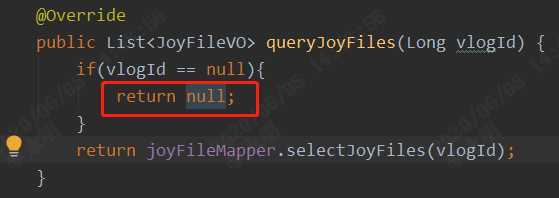1、集合要用isEmpty()判空。
Minor code smell
Use isEmpty() to check whether the collection is empty or not.
问题代码:

Rule:
Using Collection.size() to test for emptiness works, but using Collection.isEmpty() makes the code more readable and can be more performant.
The time complexity of any isEmpty() method implementation should be O(1) whereas some implementations of size() can be O(n). Noncompliant Code Example if (myCollection.size() == 0) { // Noncompliant /* ... */ } Compliant Solution if (myCollection.isEmpty()) { /* ... */ }
2、重复的字符串要定义常量。
Critical code smell
Define a constant instead of duplicating this literal "total" 3 times.
rule:
Duplicated string literals make the process of refactoring error-prone, since you must be sure to update all occurrences. On the other hand, constants can be referenced from many places, but only need to be updated in a single place. Noncompliant Code Example With the default threshold of 3: public void run() { prepare("action1"); // Noncompliant - "action1" is duplicated 3 times execute("action1"); release("action1"); } @SuppressWarning("all") // Compliant - annotations are excluded private void method1() { /* ... */ } @SuppressWarning("all") private void method2() { /* ... */ } public String method3(String a) { System.out.println("‘" + a + "‘"); // Compliant - literal "‘" has less than 5 characters and is excluded return ""; // Compliant - literal "" has less than 5 characters and is excluded } Compliant Solution private static final String ACTION_1 = "action1"; // Compliant public void run() { prepare(ACTION_1); // Compliant execute(ACTION_1); release(ACTION_1); } Exceptions To prevent generating some false-positives, literals having less than 5 characters are excluded.
3、方法不要返回null
Major code smell
Return an empty collection instead of null.
问题代码:

rule:
Returning null instead of an actual array or collection forces callers of the method to explicitly test for nullity, making them more complex and less readable. Moreover, in many cases, null is used as a synonym for empty. Noncompliant Code Example public static List<Result> getResults() { return null; // Noncompliant } public static Result[] getResults() { return null; // Noncompliant } public static void main(String[] args) { Result[] results = getResults(); if (results != null) { // Nullity test required to prevent NPE for (Result result: results) { /* ... */ } } } Compliant Solution public static List<Result> getResults() { return Collections.emptyList(); // Compliant } public static Result[] getResults() { return new Result[0]; } public static void main(String[] args) { for (Result result: getResults()) { /* ... */ } } See CERT, MSC19-C. - For functions that return an array, prefer returning an empty array over a null value CERT, MET55-J. - Return an empty array or collection instead of a null value for methods that return an array or collection
4、父类的静态成员不应该使用子类访问。
Critial code smell
Use static access with "com.alibaba.fastjson.JSON" for "parseObject".
问题代码:

修改方案:

rule:
"static" base class members should not be accessed via derived types Code smell Critical squid:S3252 In the interest of code clarity, static members of a base class should never be accessed using a derived type‘s name. Doing so is confusing and could create the illusion that two different static members exist. Noncompliant Code Example class Parent { public static int counter; } class Child extends Parent { public Child() { Child.counter++; // Noncompliant } } Compliant Solution class Parent { public static int counter; } class Child extends Parent { public Child() { Parent.counter++; } }
5、Boolean包装类应该避免在表达式中使用。
Minor code smell
Use the primitive boolean expression here.
问题代码:

修改方案:

rule:
Boxed "Boolean" should be avoided in boolean expressions Code smell Minor squid:S5411 When boxed type java.lang.Boolean is used as an expression it will throw NullPointerException if the value is null as defined in Java Language Specification §5.1.8 Unboxing Conversion. It is safer to avoid such conversion altogether and handle the null value explicitly. Noncompliant Code Example Boolean b = getBoolean(); if (b) { // Noncompliant, it will throw NPE when b == null foo(); } else { bar(); } Compliant Solution Boolean b = getBoolean(); if (Boolean.TRUE.equals(b)) { foo(); } else { bar(); // will be invoked for both b == false and b == null } See * Java Language Specification §5.1.8 Unboxing Conversion
结束。
原文:https://www.cnblogs.com/it-deepinmind/p/13049913.html